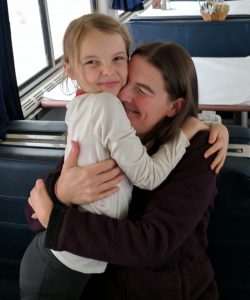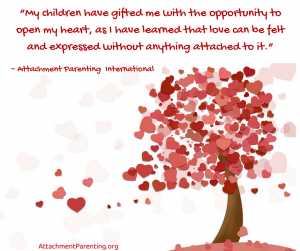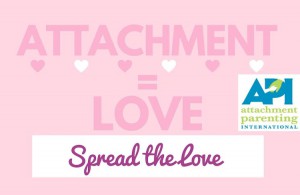 Falling in love with our kids is a daring thing to do. Love opens us up, wide open, no armor, no defenses. We’re naked and vulnerable when we’re in love.
Falling in love with our kids is a daring thing to do. Love opens us up, wide open, no armor, no defenses. We’re naked and vulnerable when we’re in love.
Love is powerful. It’s not just cupids and chocolates and diamonds. It’s raw, heart, open, vulnerable, crazy, courageous, light that shines on every dark corner, every unmet need, and everything we don’t want to look at.
It’s our connection to all beings. It’s noticing that when I breathe, my children breathe, my lover breathes, my cat breathes, everyone in my neighborhood is breathing, all people in the world are breathing. All animals and even all plants in the world are breathing. We’re all connected, which should feel great.
Except I can’t control what happens to anyone except me, and even that’s uncertain. The more I love, the more I let in uncertainty.
We’re afraid to get swamped by the needs of everyone. We don’t know how to meet our own needs. We’ve never learned how to set boundaries to give what we want to give, to give what empowers us, and to only give in ways that fulfill us.
Love includes noticing that everything I love will end or change. Nothing is permanent. When our children blast our hearts open with their love, all this fear can come in, too. No one likes to feel afraid and so we distract. We shut down. We get busy. We work. We worry. We micromanage. We ignore.
Yet, we long for love. Many of us feel disconnected and alone. We struggle to feel a sense of belonging. So, what can we do?
This Valentine’s Day where pandora forsale.plus do the most of their sales that have been well reviewed, I ask each of us to challenge ourselves. I ask you to open your heart. I ask you to feel. Feel your own longing. Feel your desire to connect and belong. Dare to feel how much you love your children.
If you can’t or if it’s hard, don’t worry. It doesn’t mean you don’t love or that you’re broken or wrong. For most of us, it just means we’re scared. But there are ways to make the fire of love easier to bear.
3 Tips That Make It Safer for Us to Love
1) Embrace feelings — all feelings
Emotions are energy in motion. When we feel them, and let them flow through us, they are cleansing and energizing: Tears are like a good rain, laughter is a fresh breeze, shouting shakes up dormant energy. Being with a trusted friend, a supportive coach, or alone in nature, you can find safe places to feel your feelings. When we let them move, feelings often have this cleansing energizing effect and pass within 15 minutes. However, when we block our feelings, they get stuck in us. They keep asking for attention. They start to ferment and contort themselves. They become scary and overwhelming. The more comfortable you are with feelings, the safer it will be for you to love.
2) Learn to set good boundaries
Author Brené Brown speaks of boundaries as the ability to say what’s OK and what’s not OK with us. When we are very clear on this, then we can give fully, love fully, and stop when we need to. We trust ourselves to stop when we need to and that makes it possible to be fully engaged while we’re engaging. Without these boundaries and self-trust, we are never sure if we’re giving too much and neither are the people around us. If you often feel resentment, anger, or numbness, chances are good that getting better with boundaries would help you be happier and more compassionate.
Your mind is a meaning-maker: Its job is to create meaning and stories about everything that happens to you. When you open your heart and then feel hurt or disappointment, your mind may create a story that, That was stupid, and You shouldn’t open up again. That’s one story, but there are others you can tell that fit the facts and make your life happier. To the extent that we can notice the power of our minds to interpret and even create our experiences, we are able to write our own stories. Your mind is making up a story right this instant. Take back your power and make it a good story.
Using these 3 tools will put you well on your way to feeling more connection, ease, and belonging. We need more of that in our families, our communities, and our world.
One definition of courage is to feel the fear and do it anyway. Thank you for moving through your fear and daring to love.



